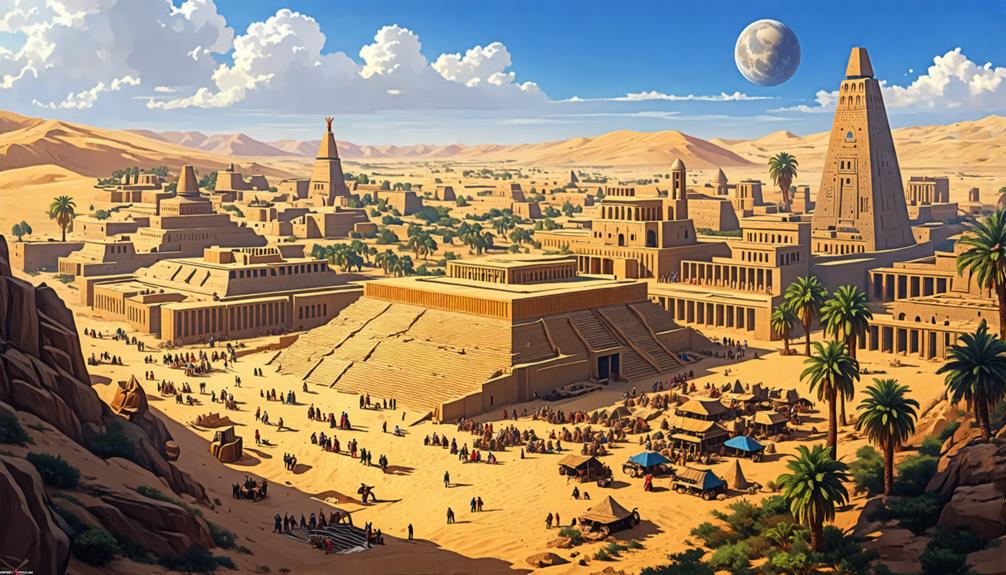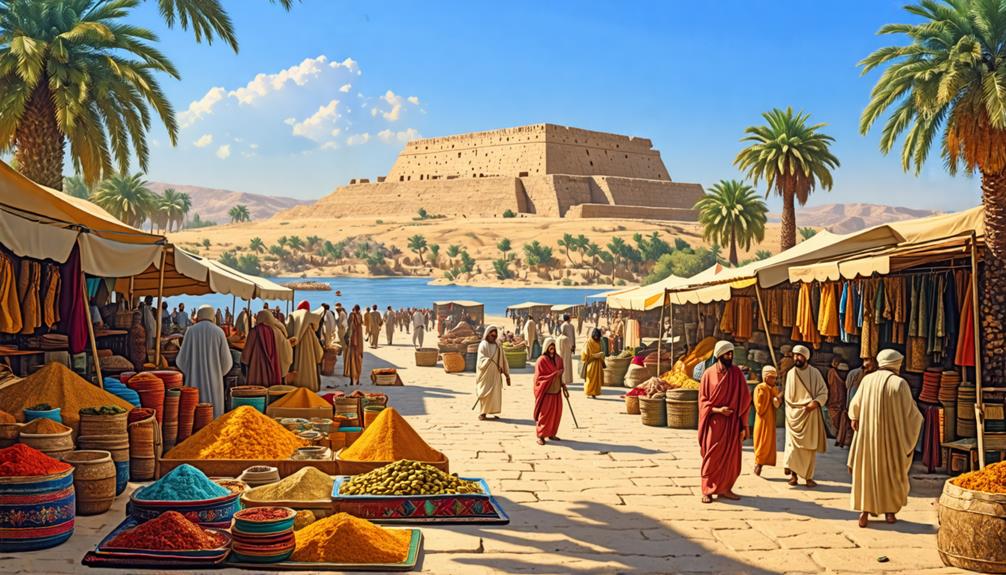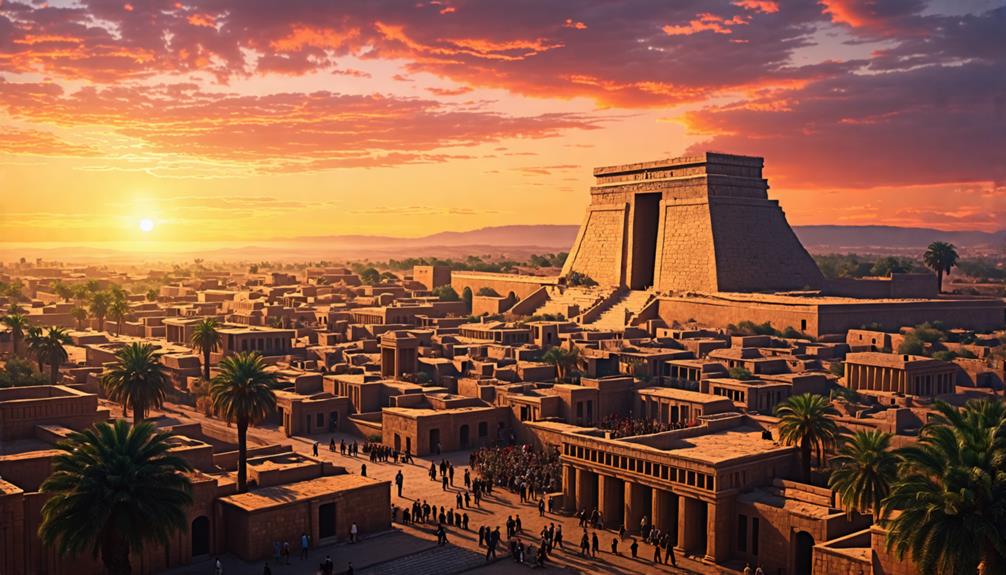What if Babylon had remained the dominant power in Mesopotamia?
Imagine a world where this ancient empire continued to shape history and influence civilizations for centuries to come.
In this alternate timeline, Babylon's advanced legal systems, astronomical knowledge, and architectural marvels would have had a profound impact on the development of human society.
The geopolitical landscape and the rise of subsequent empires would have been drastically different, leading to a fascinating exploration of how our world might have evolved under Babylonian dominance.
Babylonian Empire's Lasting Legacy

Had Babylon's influence endured, it's possible that their advanced knowledge of astronomy, mathematics, and legal systems would have shaped cultures and civilizations worldwide.
One theory is that the Hanging Gardens, one of the Seven Wonders of the Ancient World, might still exist today, inspiring awe and wonder in all who see them.
It's conceivable that Babylonian cuneiform script could have become the universal written language, potentially leading to a more interconnected global society.
While the Babylonian Empire didn't persist, some of their innovations and ideas were later adopted and built upon by other civilizations, such as the ancient Greeks and Romans.
Religious and Cultural Influence
In an alternative history scenario where the Babylonian Empire remained dominant, their religious beliefs and practices could have significantly influenced the spiritual landscape of the ancient world.
One theory is that the worship of deities like Marduk and Ishtar would have spread far and wide, with temples dedicated to these gods dotting the land and solidifying Babylonian cultural and religious hegemony.
It's possible that Babylonian mythology, astrology, and divination practices could have become more widespread and influential.
If this scenario did occur at a later date by another empire, such as the Assyrians or Persians, it could have meant changes to the religious and cultural practices of the regions they conquered, with their own deities and beliefs intermingling with or supplanting those of the Babylonians.
Scientific and Technological Advancements

In an alternative history where the Babylonian Empire remained dominant, their continued advancements in astronomy, mathematics, and engineering could have led to some intriguing developments.
One theory is that they might've invented more advanced irrigation systems and architectural techniques, pushing the boundaries of what was possible at the time. It's also possible that Babylonian scholars could have made early discoveries in calculus and other branches of mathematics.
While the Babylonians didn't achieve this level of dominance in our timeline, some of these advancements were made centuries later by other civilizations.
The Greeks and Romans built upon Babylonian knowledge to make their own contributions to science and technology. During the Islamic Golden Age, scholars made significant progress in fields like algebra, trigonometry, and astronomy that had their roots in Babylonian teachings.
Geopolitical Landscape Shifts
In an alternate timeline where Babylon maintained dominance, the geopolitical landscape of the ancient world would have looked very different. One theory is that Babylonian influence could have shaped trade routes, cultural exchanges, and military alliances across a vast region spanning Mesopotamia, Egypt, Persia, and the Mediterranean.
It's possible that the rise of later empires, such as Macedonia under Alexander the Great or the Roman Empire, might've been significantly altered or even prevented altogether. However, some scholars argue that similar centralized empires would have eventually emerged, just under different leadership and perhaps at a later date.
Economic and Trade Dominance

In an alternate timeline, Babylon's merchants could have dominated trade across the ancient Near East, ushering in an age of great prosperity. One theory is that their economic power would have significantly influenced the region's geopolitical dynamics, with surrounding kingdoms vying for Babylonian support and favors.
It's possible that Babylon's reach would have extended well past its territorial bounds, solidifying its status as a dominant force.
Interestingly, some scholars argue that a similar scenario did play out centuries later, with empires like the Romans, Persians, and Ottomans controlling vast trade networks and shaping the political landscape of their times.
Alternate Historical Timeline
In this alternate historical timeline where Babylon remained dominant in Mesopotamia, one theory is that Babylonian culture, religion, and language would have shaped the region for centuries.
It could have meant changes to trade routes under Babylon's control, potentially leading to significant wealth and prosperity.
Some historians speculate that Babylon's influence might've extended far beyond its borders, leaving a profound impact on the course of human history.
It's worth noting that similar scenarios of Babylonian dominance did occur at later dates under rulers like Nebuchadnezzar II, although not to the same extent as in this hypothetical timeline.
Conclusion
You might be surprised to learn that Babylon's famous Hanging Gardens, one of the Seven Wonders of the Ancient World, were an early example of hydroponics.
Had Babylon remained dominant, this technology could've revolutionized agriculture across Mesopotamia and beyond.
It's fascinating to imagine how different our world might look today if Babylon had continued to shape the course of history, leaving an enduring legacy that would've resonated through the ages.

Leave a Reply